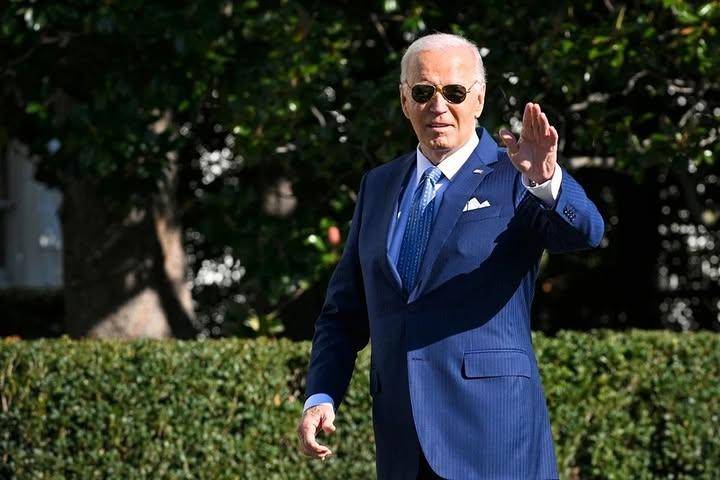Joe Biden in Angola: A Strategic Move to Bolster U.S.-Africa Relations
In December 2024, U.S. President Joe Biden embarks on his first-ever bilateral trip to Africa as President, visiting Angola just weeks before his presidency concludes. The visit, which also includes a brief stop in Cape Verde, is being hailed by analysts as a pivotal moment for Biden's legacy in Africa. For many, this final Africa trip is seen as an attempt to strengthen U.S. influence on a continent that is increasingly influenced by China and Russia. But with only a short window to act, the question remains: can Biden redeem his legacy in Africa?
Why Has President Biden Waited So Long to Visit Africa?
One of the most notable aspects of Biden’s presidency is his lack of visits to African nations. The only notable exception was his brief appearance in Egypt for the COP27 climate summit in November 2022. This gap in visits has raised questions about the Biden administration’s focus on Africa. Experts argue that Biden’s administration has not given Africa the attention it deserves, with other regions like Europe and Asia receiving more of the President's focus.
The lack of engagement, particularly in comparison to China’s growing presence, has led to a waning influence of the U.S. on the continent. As China has been cultivating economic and political ties across Africa, the U.S. risks losing its foothold on a continent of critical strategic importance. Africa’s natural resources, burgeoning population, and voting power in the United Nations make it a vital player in global geopolitics. However, Biden's delayed visit suggests that his administration has not prioritized the continent, which could impact his legacy in the region.
A Last-Ditch Effort to Counter China’s Influence.
President Biden's Africa strategy has been shaped by the increasing influence of China, which overtook the U.S. as Africa's largest trade partner in 2013. Chinese investments, particularly in infrastructure, have strengthened Beijing's ties with many African nations, while the U.S. has struggled to maintain influence.
Biden’s administration sought to shift away from former President Trump’s trade-focused approach, instead pushing for greater African leadership in global platforms like the United Nations and G20. Despite the ambitious Africa strategy outlined in 2022, the lack of significant action has led to skepticism about its long-term impact. As a result, Biden’s visit to Angola is seen as a final effort to solidify the U.S.'s position on the continent and counter China’s expanding dominance.
Angola's Role in Biden’s Visit.
Angola, a key player in sub-Saharan Africa, holds strategic importance for the U.S. The visit is intended to highlight the close ties between Washington and Luanda, which has shifted its foreign policy focus toward stronger relations with the U.S. since President João Lourenço took office in 2017. Angola, once heavily indebted to China, has gradually distanced itself from Beijing and deepened its trade relations with the U.S. In fact, by 2023, the two nations’ trade volume reached approximately $1.77 billion, with Angola ranking as the fourth-largest trade partner for the U.S. in sub-Saharan Africa.
The timing of Biden's visit is also significant as Angola plays a leading role in mediating conflicts in the region, such as the ongoing tensions between the Democratic Republic of Congo (DRC) and Rwanda. The U.S. has a vested interest in supporting Angola’s diplomatic efforts, especially as the region faces escalating violence from armed groups.
What Does Biden's Visit Mean for His Legacy?
For Biden, this trip represents an opportunity to fulfill long-standing promises made to Africa. While it may be too late to fully reshape U.S.-Africa relations, the visit serves as a symbolic gesture to demonstrate his commitment to the continent. Experts note that Biden’s focus is not just about strengthening trade ties but also about fostering leadership and collaboration on global issues.
However, Biden’s “legacy†in Africa is complicated by his administration's late engagement, especially as African nations have grown accustomed to the leadership of other global powers like China and Russia. Biden may face challenges in re-establishing trust and influence in a region already looking ahead to his successor.
In conclusion, President Biden’s visit to Angola is an important but challenging move in the final phase of his presidency. While the visit underscores growing U.S.-Angola relations, it also highlights the broader challenges of rebuilding U.S. influence on the African continent. As the geopolitical landscape continues to shift, Biden’s actions in Africa will be a defining part of his legacy. Whether this visit can deliver lasting results for U.S.-Africa relations remains to be seen, but it is clear that Africa's strategic importance cannot be overlooked in the years ahead.



No comments yet
Be the first to share your thoughts!